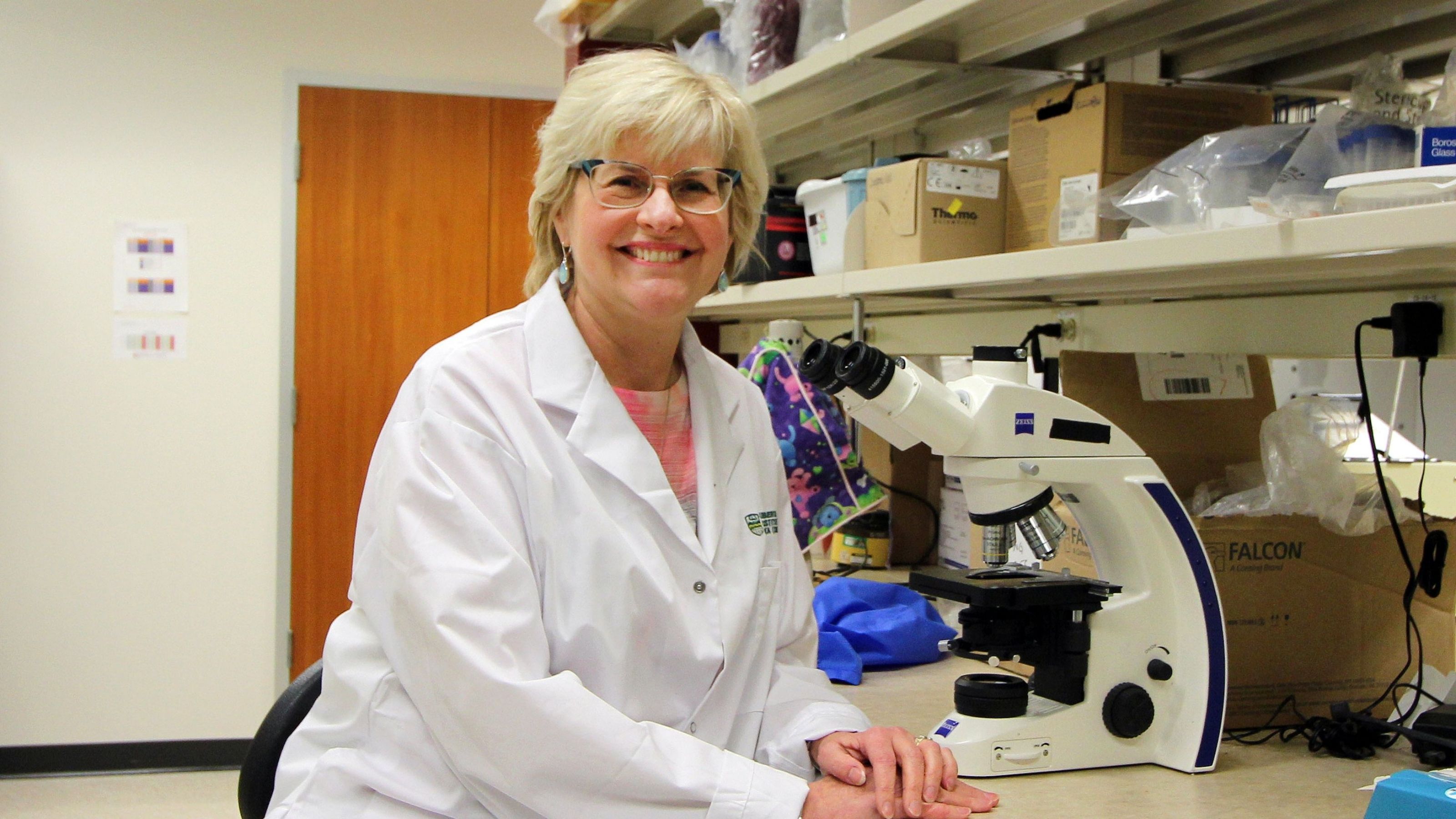As a professor in the Agricultural, Food & Nutritional Science Department in the Faculty of ALES and Canada Research Chair Tier 1 in Human Nutrition and Metabolism, Catherine Field works toward understanding how the long chain n-3 fatty acids, particularly docosahexaenoic acid (DHA), can benefit the immune system.
In this week’s spotlight, Catherine invites us to let our mind wander to find solutions and demonstrates how the power of following your heart in research can contribute to impactful results.
How do you describe your work to people who don’t work in your field?
We have two major focuses in our group. We study how diet early in life influences the development of the immune system. In this area, the majority of our work has focused on the first year of life, both during breastfeeding and the introduction of complementary food.
We are also working on trying to improve the response of chemotherapy treatment for women who are going through breast cancer therapy - specifically the immune system and the tumour response.
What ties these areas together is dietary fats: we are trying to understand how the long chain n-3 fatty acids, particularly docosahexaenoic acid (DHA), can benefit the immune system.
What’s one big problem you want to solve through your work?
To provide the evidence that dietary fat can improve immunity and can be incorporated into public health recommendations for mom, infant and commercial formula, as well as be added to cancer treatment guidelines for clinical practice.
What does the word “innovation” mean to you?
Thinking outside the box and doing something that is new.
What’s been your biggest a-ha moment — in life or work — so far?
Our first study on breast cancer in animal models (now 15 years ago) when we showed that feeding DHA to animals with breast cancer resulted in very very small or no tumours. We predicted a better immune response but did not expect this type of response!
How do you or your team come up with your best ideas? (Do you have any rituals or habits that trigger your creative spark, for example? What do you do to create space for innovation?)
I think my best ideas come when I walk my dog. I can let my mind wander and think about ‘what if’ while I’m away from my job.
What’s your favourite thing about working at the U of A?
The ability to collaborate across division, department, and faculty boundaries.
Do you have a role model at the U of A? How have they influenced you?
My role models have retired. Dr. Tom Clandinin and Dr. Tapan Basu taught me how to treat trainees and graduate students as partners in research and how to effectively teach undergraduate students (both in small and large classes). They also taught me to follow my heart in research and not get distracted by the agenda of others, funding calls, or what others think I should do.
What’s next for you? Do you have any new projects on the horizon?
I have a very large collaborative program and many of my ideas and innovations come from these. We are moving our DHA and breast cancer research to work on ovarian cancers. We have the pre-clinical work done and are applying to move to clinical trials. We are working with the human milk bank in Toronto to improve their milk as a supplement for moms feeding preterm infants. We are working with industry to produce supplements for mom during pregnancy and lactation to ensure both she and her fetus/infant are getting sufficient DHA.
This conversation has been edited for brevity and clarity.
Innovator Spotlight is a series that introduces you to a faculty or staff member whose big ideas are making a big difference.
Do you know someone who’s breaking boundaries at the U of A? (Maybe it’s you!) We’re interested in hearing from people who are creating new solutions to make our world better. We want to feature people working across all disciplines, whether they’re championing bold ways of thinking, driving discovery or translating insights from the lab into the market.
Get in touch at blog@ualberta.ca.

About Catherine
Catherine is a member of the Cancer Research Institute of Northern Alberta whose research program centers on the effect of nutrition on the immune system. Current areas of research are: the role of polyunsaturated fats on the development of the infant’s immune system, the use of specific fatty acids in the prevention and treatment of breast cancer and identifying the association between nutritional status and maternal mental health and the neuro-physical development of infants.
